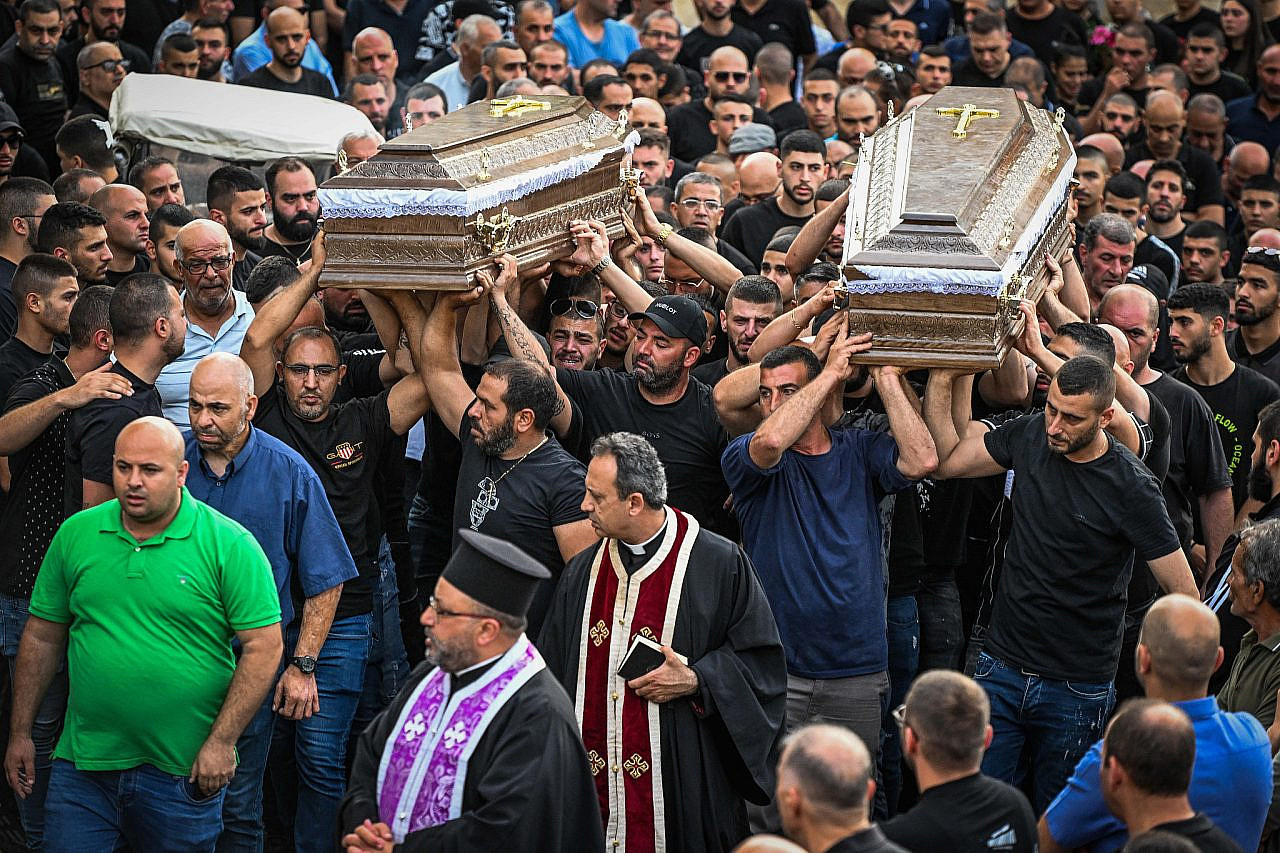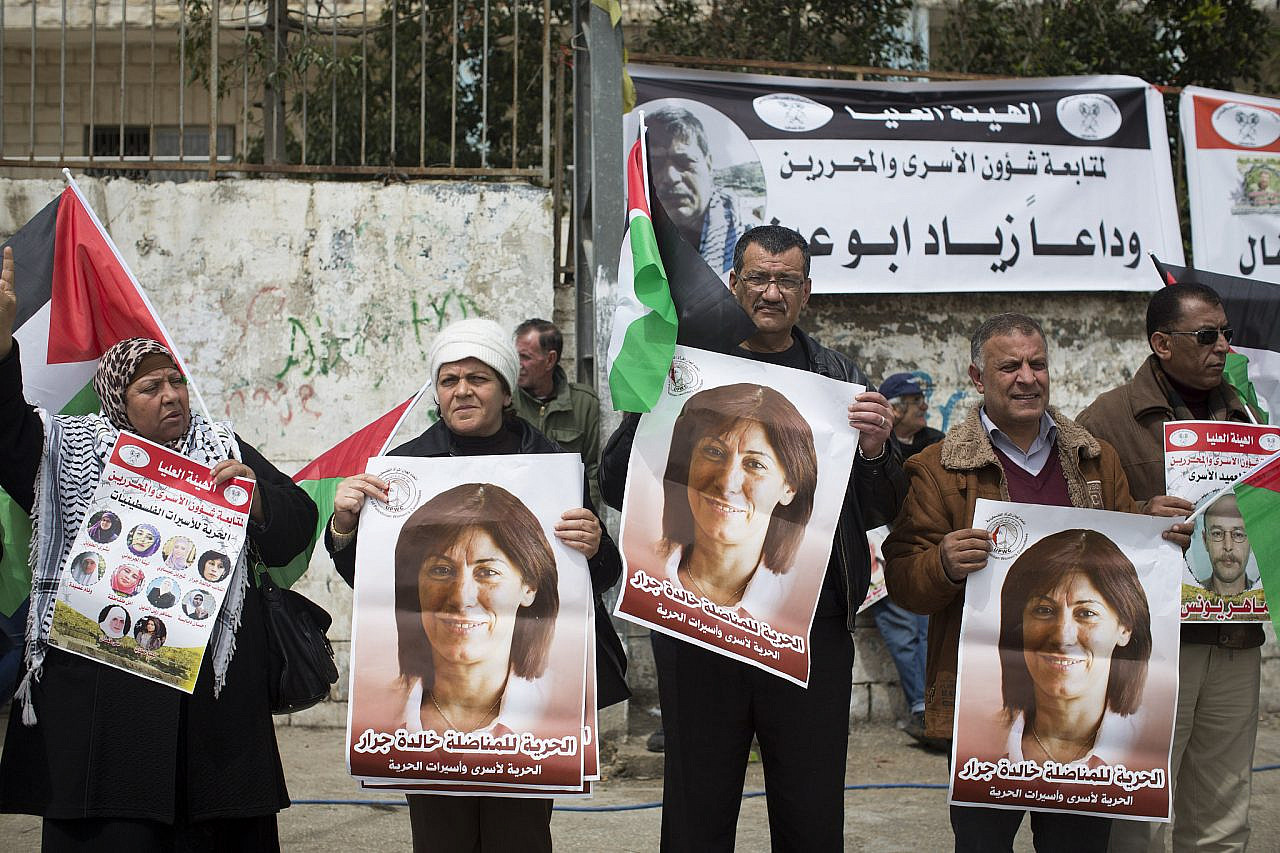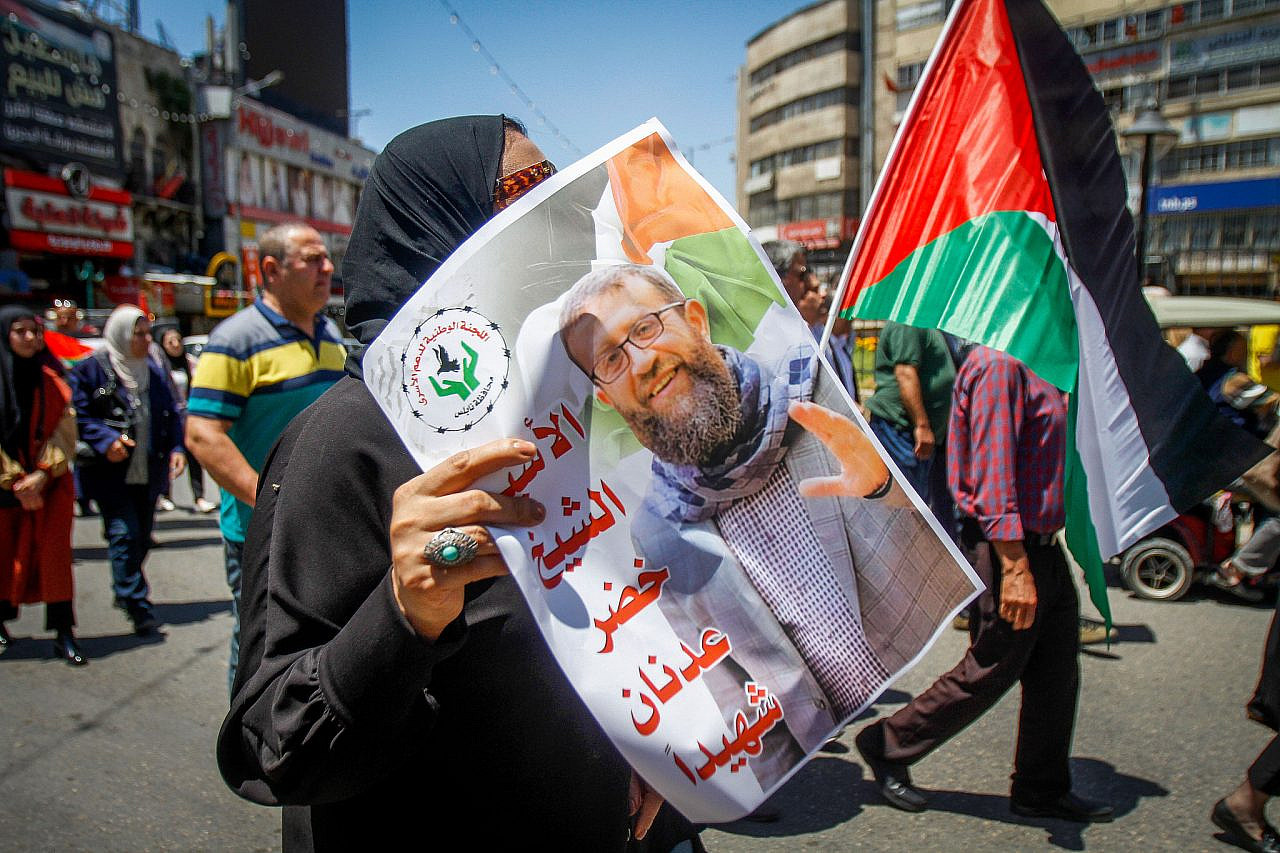As Minister of National Chaos, Itamar Ben Gvir is seizing on rising violence and crime in Palestinian society as a golden opportunity to further his own political agenda. In his mind, with the number of murder victims since the start of the year surpassing 100 and the Jewish-Israeli public finally starting to take note after a particularly bloody week, this is the moment to exploit the crisis and reimpose the military regime that ruled the lives of Palestinian citizens during the state’s early years.
Alongside pressure to fully integrate the Shin Bet (Israel’s internal security service) into what is being termed “the struggle against Arab crime” — in spite of recommendations by the attorney general, the State Prosecutor’s Office, and even the head of the Shin Bet himself — Ben Gvir is now requesting to be granted far-ranging powers that would include, among other things, the authority to put Israeli citizens in administrative detention, just as the defense minister is authorized to order the administrative detention of Palestinians in the West Bank (and, formerly, Gaza).
This would mean that the Kahanist minister would be able to jail citizens repeatedly for periods of up to six months at a time, restrict their communications and movements — including international travel — without needing to present any evidence or file charges.
It is difficult to imagine anyone believing that Ben Gvir, whose top advisor literally urinated on the spot where five Palestinian citizens were murdered last week, is genuinely worried about the personal security of the Arab community. What he truly wants is to transform himself into the new military governor who will lord over the Arabs — a post he is inching toward with the help of the Shin Bet, the private militia he seeks to establish, and, if he gets his way, the power of administrative arrests.

A tool for political repression
“On Dec. 23, 2022, at around 3:30 a.m., my husband Murad (42) and I were woken up by loud knocks on the door. I looked out the window and saw dozens of Israeli soldiers on the street. My husband opened the door, and about 10 soldiers burst in.
“One of the soldiers told my husband they’d come to arrest him, and then they took him outside and took him away. They wouldn’t let me go out with them. Later, I found out from HaMoked [an Israeli human rights NGO] that they took him to Ofer Prison. On Jan. 1, Murad got an administrative detention order for four months.
“Murad managed to call me about a week after the arrest. I didn’t get a permit to visit until Feb. 28. […] This is his second administrative arrest. Eight days after our wedding, on Oct. 25, 2012, he was arrested and given an administrative detention order for five months. Back then, I didn’t know what administrative detention was and how it worked, and I was sure he’d be released after five months. I waited for him with baited breath. But then they extended his detention for another five months, and I was shocked. When that ended, they extended it twice more for five months each time.”
Testimony of Fatima Hamdan, a resident of A-Tabaqa, in the Hebron District. Sourced from B’Tselem.
As of March of this year, Israel held 1,017 people in administrative detention, including 10 minors. 1,002 of them were Palestinian — the highest number in the last two decades. Of the 1,017 detainees, 366 have been imprisoned for less than three months; 550 for between three months and a year; 98 for between one and two years; and three of them have been locked up for more than two years.

Israel’s use of administrative detention has nothing to do with security. It is a draconian and anti-democratic tool used for political repression, enabling life imprisonment with no indictment or legal procedure, or even a semblance of due process.
Above all, administrative detention is used as a tool that complements Israel’s broader effort to securitize and criminalize the struggle for Palestinian liberation. Since all Palestinian parties over the Green Line are defined by Israel as terrorist organizations, membership in any of them is banned and can lead to arrest (see, for example, the frequent arrests of Khalida Jarrar, a member of the Palestinian Legislative Council, as well as the arrests of other Palestinian parliamentarians and ministers). Administrative detention, however, allows Israel to imprison Palestinians for indefinite periods of time and to do so quietly, in the dark, without running the risk of turning these trials into a public spectacle.
If Ben Gvir’s request is granted, one of the immediate implications will undoubtedly be the entrenchment of criminalizing Palestinian politics within Israel. We are already seeing how Arab parties and politicians are being forced to appear before the Supreme Court before every election as they face disqualification by the Central Elections Committee. We can only speculate where these attempts at cracking down on Palestinian politics will lead, but the combination of the coalition’s effort to neuter the judiciary on the one hand, and the expansion of “security” tactics used against Palestinian citizens on the other, does not bode well.
Reaping the fruits
In addition to its utility as a tactic of political repression, administrative detention is used by Israel to torture detainees. Not only by cruelly ignoring the hunger strikes of the detainees — including that of Khader Adnan, who died last month after a weeks-long hunger strike — but also by withholding medical care during detention, as countless prisoners and their families have testified.

“On November 22, 2022, soldiers came to our house at around 2:30 a.m. and arrested Khaled. Before they took him, he told them that he was waiting for surgery. They told him to take all his medical reports and medications with him and promised him he would get care, but I felt they were lying.
“On [my] last visit, he said he’d run out of the medications he took with him the night of his arrest and that the prison wasn’t giving him new ones. Doctors Without Borders, which is monitoring his condition, told me that Khaled should get an X-ray and be seen by a cardiologist, but this hasn’t happened yet.
“My husband’s medical condition affects his mental state. The uncertainty about his release date is also very stressful for him. They can renew the administrative detention again and again, even ten times. […] Everyone in the family is living in fear and worry about his medical condition. His life is really in danger.”
Testimony of Ahlam Nawabit, a resident of the village Burqa, in the Ramallah district. Her husband, Khaled, who is in need of open-heart surgery, has been held in administrative detention since Nov. 22, 2022, and his detention was recently extended by six months. Sourced from B’Tselem.
The fact that frequent, arbitrary and unaccountable (except for the rubber stamp of a military judge) detention in the West Bank is seen simply as a fact of nature that barely makes a dent in Israeli society is a grave enough act of willful ignorance. The attempt to import this draconian practice into the state to be used against Palestinian citizens, however, represents an important step in what the legal organization Adalah calls the “enemy aliens” doctrine. This is how Israel has always regarded its Arab citizens: as a demographic, political, and security threat to the state.
Most read on +972
Ben Gvir’s aspiration doesn’t mark a fundamental deviation from the way the Israeli establishment has always treated Palestinian citizens, but it seeks to provide him with yet another tool that will have far-ranging implications. That Ben Gvir is exploiting the blood of Arab citizens as an excuse to promote his fascist ambitions is truly a new, and horrific, low.
For years, the system has allowed the deadly scourge of organized crime in Arab localities to run wild, with those in power ignoring the warnings, pleas, and proposals of Palestinians. Now, Ben Gvir has come to reap the fruits of this chaos in order to impose the de facto military regime that he yearns for.
A version of this article was first published in Hebrew on Local Call. Read it here.






